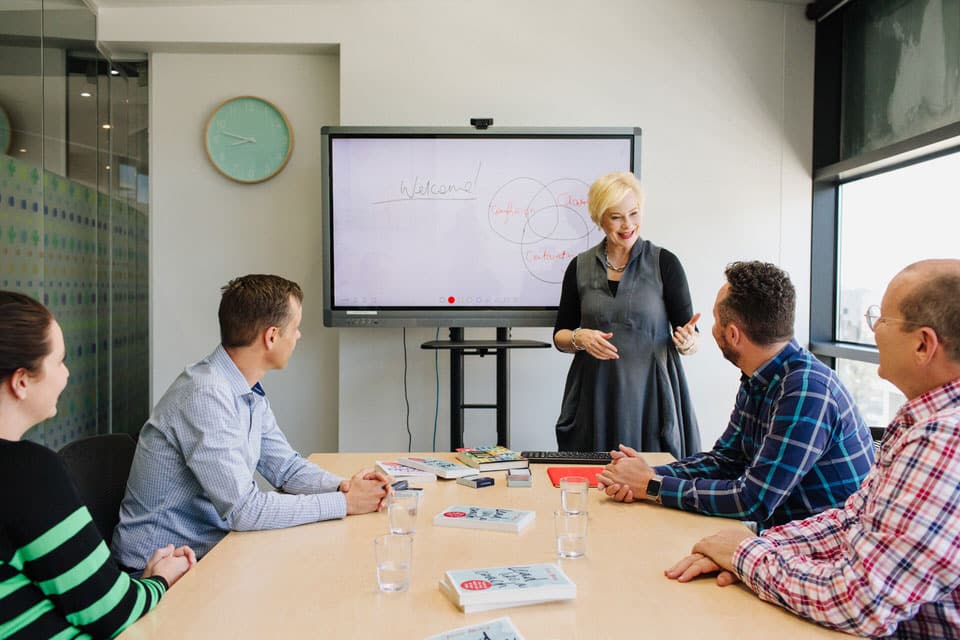How To Be An Ally By Calling Out Your Own Bias And That Of Others

It can be threatening for people who feel excluded to speak up about their different experiences and needs. When women ‘raise the gender card’ they may well be greeted by eyerolling.
Being an ally means that you are proactive in your support, and call injustice out when you see it. By being an ally, you reduce bias. You show people that it’s safe to speak up about concerns and questions about identity and opportunity.
Jasmine’s story is a good example that shows the value of an ally. She was feeling increasingly uncomfortable when she walked into the tearoom. Several times she’d interrupted conversations in which women’s bodies were being derided. It was clearly inappropriate. Senior managers were involved in the conversations. Being relatively junior, Jasmine just wasn’t sure what to do about it; she felt embarrassed.
She raised it with her team leader, John, who then raised the concern with the senior leaders. They claimed to be “just joking” and saw it as “harmless fun”. John disagreed with them and called them out for their inappropriate behaviour.
It was David Morrison as Lieutenant General of the Australian Army who popularised the saying “The standard you walk past is the standard you accept”. Let it go by, and you give permission to repeat bad behaviours. Be an ally, call it out, and you can help make work more inclusive.
One of the most powerful ways to be an ally is by calling out your own bias. When you do, you make it easier for others to notice their bias. Here are four tactics that can help you call out your own bias.
- Notice your bias
We humans are not innately fair. People are treated differently. If you can notice that different people are treated differently, you can be more aware of your own bias.How much bias is activated depends on momentary changes in your attention. You might perceive a frown by someone like you as an expression of thoughtfulness, yet when someone different from you does the same you perceive it as criticism.
Micro-behaviours are so small that they seem as if they ought to be inconsequential, but they are not. They build into what we say, how much effort we put into understanding people, whether we promote them.
Collect some data on your own interactions. Who do you spend most time with? Whose advice do you seek? Who do you not include in meetings? Get curious about your bias.
- Check your privilege
Privilege is a strange thing: we judge our personal disadvantage differently to group disadvantage.When confronted by group disadvantage, such as women experience, we minimise it and play up our own. We fear that others will see our privilege as unearned and we dissociate from it.
For example, people who use family connections to get a job don’t see that as advantage; they believe that they have won the job on merit. When they hear of others who used family connections to get a job, they see them as benefiting from advantage and judge them as less qualified. The rules applied to others are different from the rules we apply to ourselves.
If we reflect on the privilege that we hold as part of a dominant group, such as men or whites, we are less likely to minimise our advantage. For example, we can reflect and remind ourselves of our values (for example, fairness) or we can reflect on our personal successes.
- Empathise with ‘otherness’
The more power you have, the more your empathy diminishes. People in dominant groups can be blind to the idea that others experience the world differently; they see their own experiences as universal. Yet those who are different are constantly reminded of their ‘otherness’.‘Otherising’ people can also be a consequence of good intentions. We put women on a pedestal, decide on their best interests, do good for them. This is just another way to treat them as ‘other’. Check yourself – whose interests are being served? Yours, or theirs? Focus on empathy; ask them what they need.
- Say it, ask it
One of the simplest ways to call bias out is to be candid and curious. Some of the options are: ‘I don’t know what to say’, ‘I’m not sure of how to respond’, ‘I feel out of my depth’ ‘I really haven’t noticed that before’, or ‘What am I not noticing here that’s obvious to others?’
Follow-up questions are great. If someone makes a point, then ask a follow-up question. That helps people to feel validated, understood and listened to.
Written by Dr. Karen Morley. Here’s what you’ve missed?
Best Executive Search Firms.
Best Websites For CEOs And Senior Executives
World’s Top Global Wealth Management And Advisory Firms.
Bring the best of the CEOWORLD magazine's global journalism to audiences in the United States and around the world. - Add CEOWORLD magazine to your Google News feed.
Follow CEOWORLD magazine headlines on: Google News, LinkedIn, Twitter, and Facebook.
Copyright 2025 The CEOWORLD magazine. All rights reserved. This material (and any extract from it) must not be copied, redistributed or placed on any website, without CEOWORLD magazine' prior written consent. For media queries, please contact: info@ceoworld.biz








